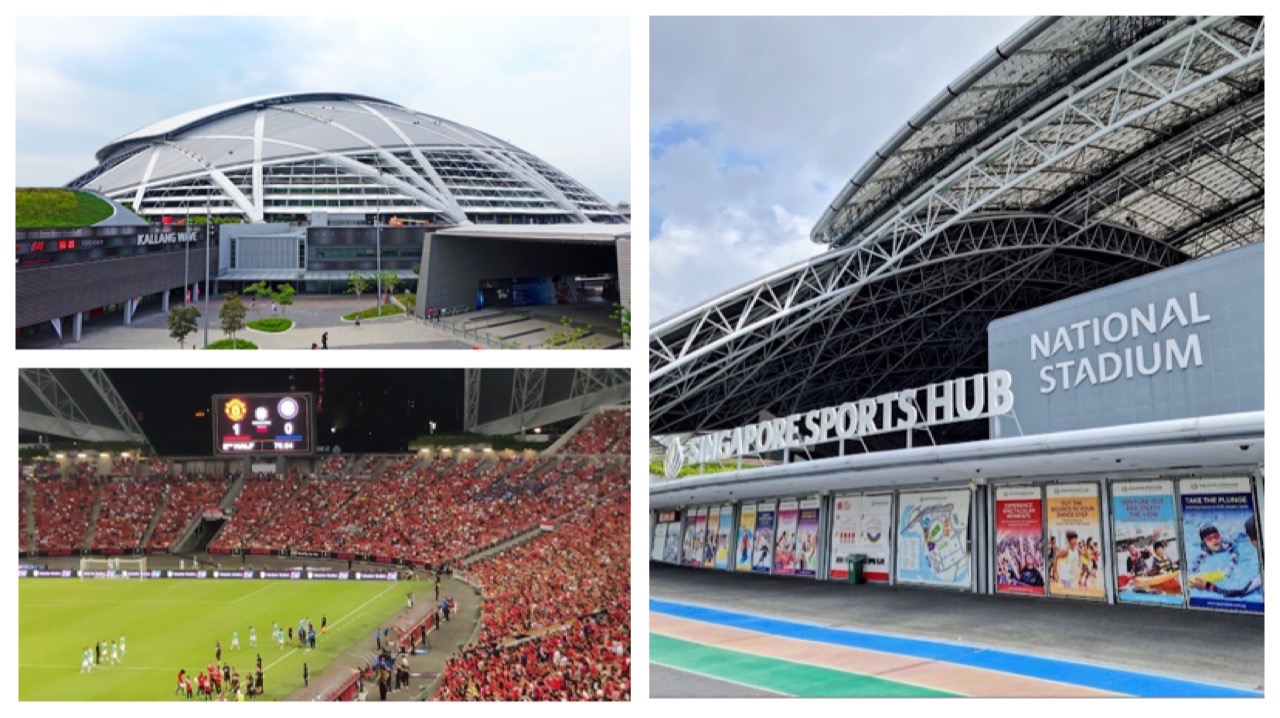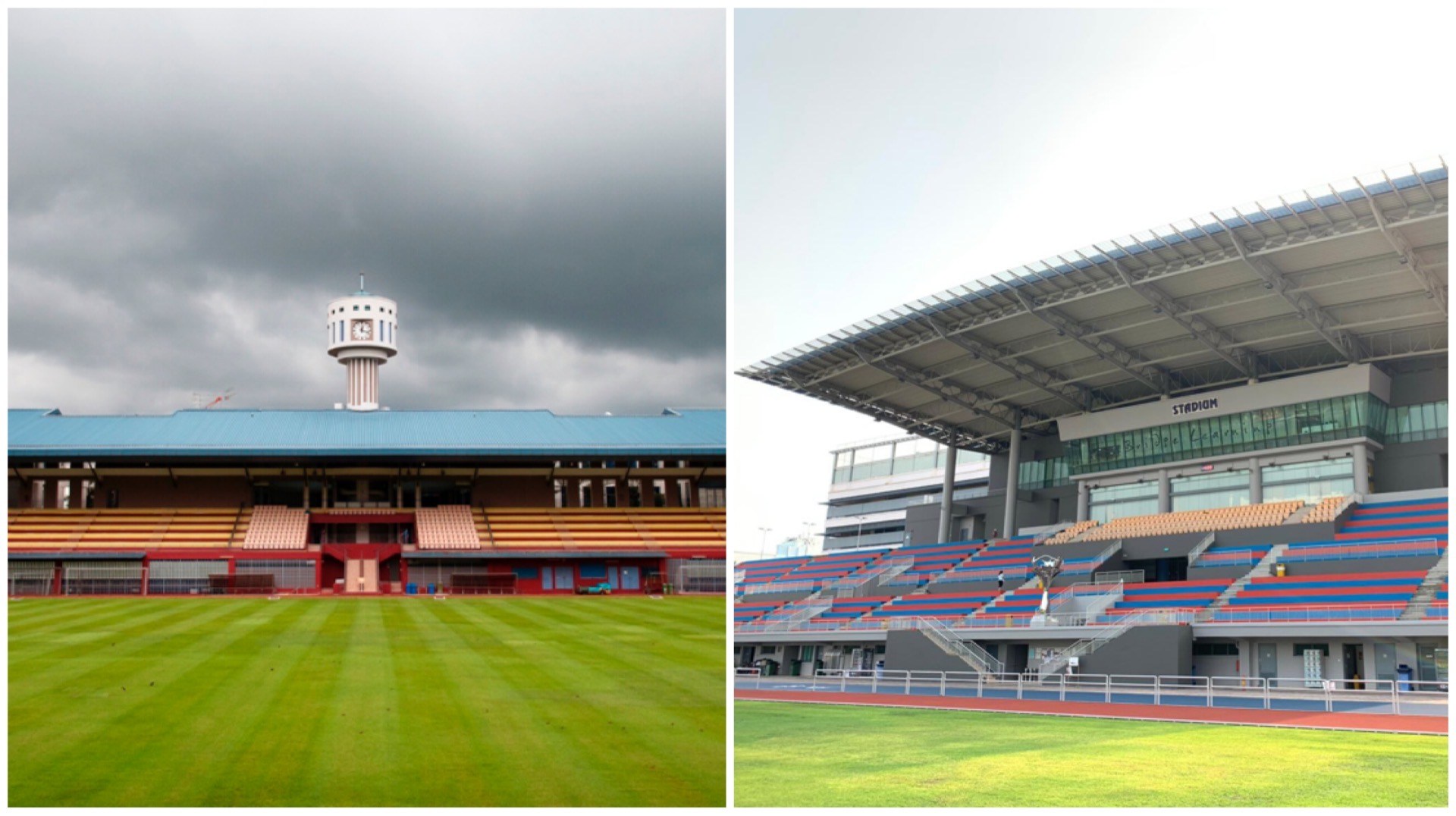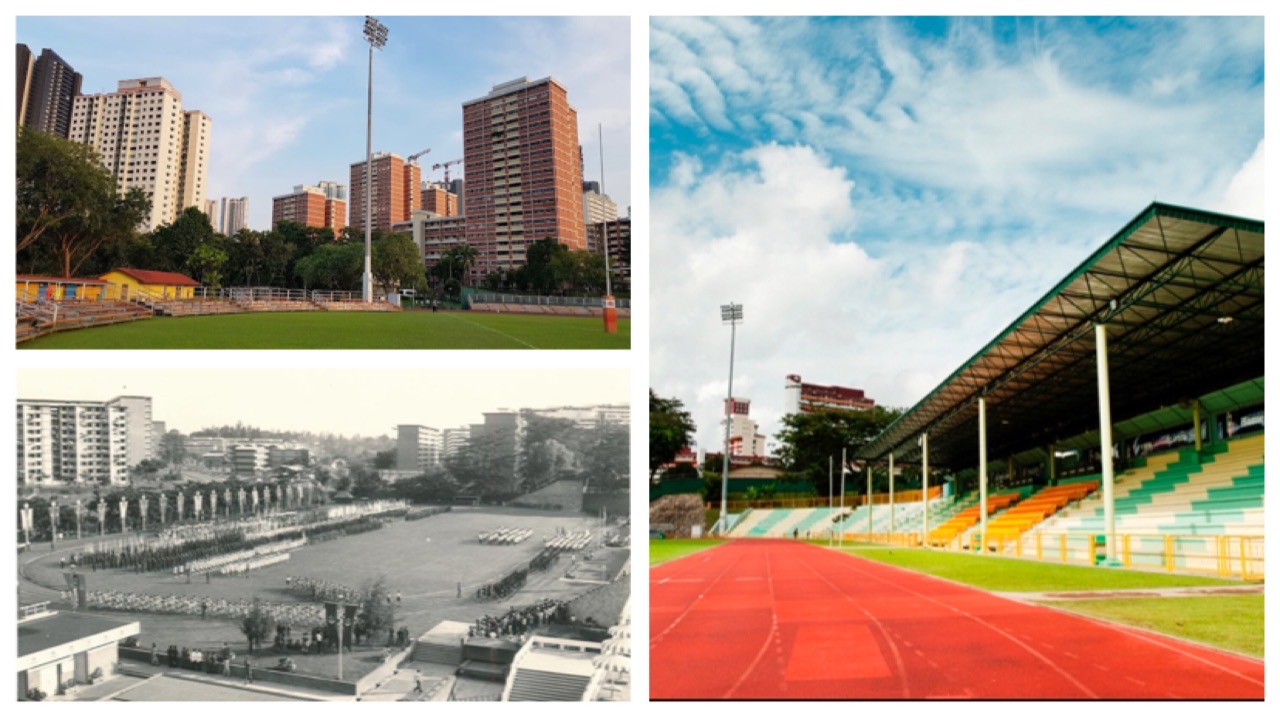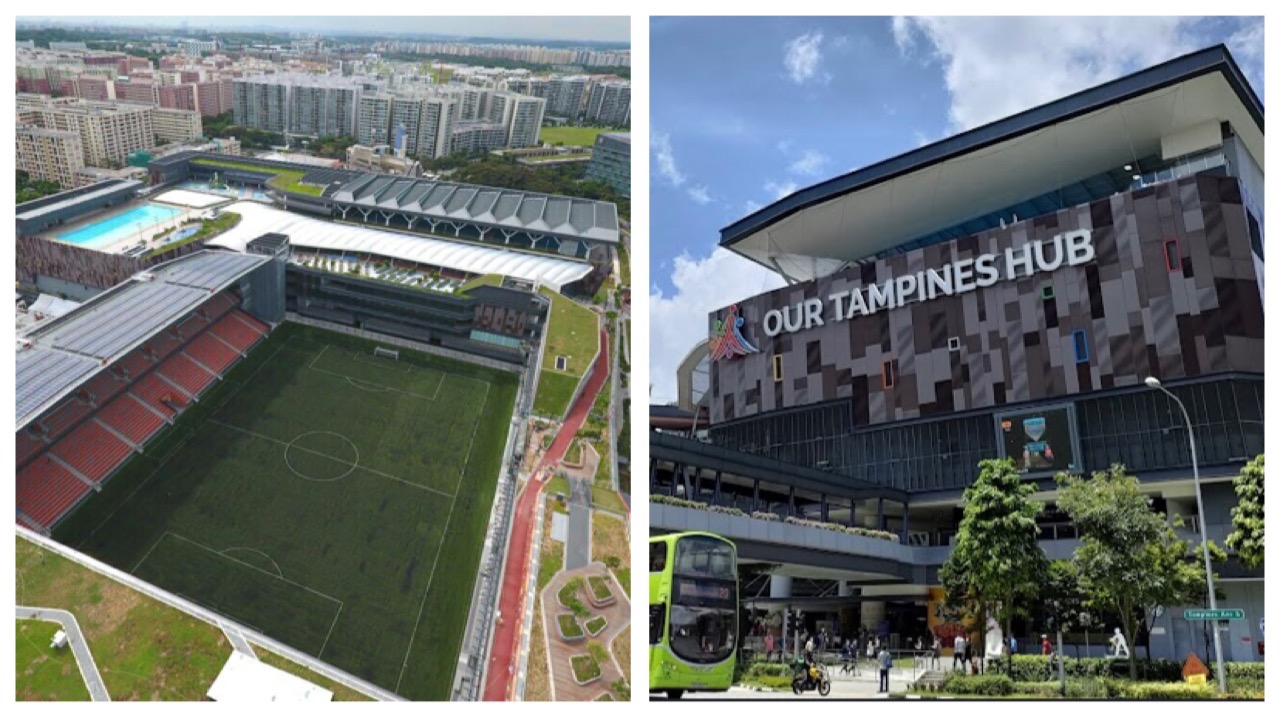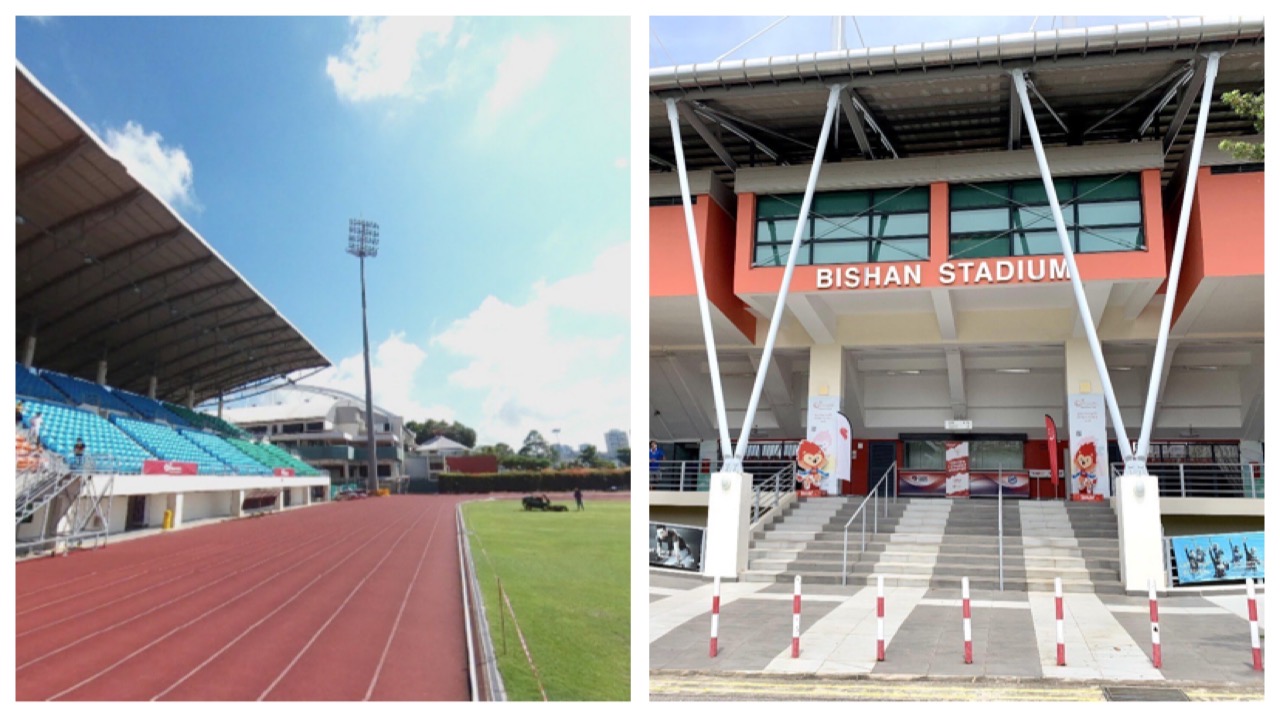Stadium Stories: Singapore Sports Hub - From Grand Old Dame To Modern Masterpiece
When you think of architectural landmarks in Singapore, one of the most iconic most certainly is Singapore Sports Hub. In the latest edition of our "Stadium Stories" series, we take a closer look at this state-of-the-art multi-purpose complex that overlooks the Kallang Basin.
The crown jewel of the venue is the 55,000-seat National Stadium which is built on the site of the former Kallang Stadium, home to countless football memories and National Day Parades.
Since opening in 2014, the Singapore Sports Hub has built on the legacy of the Grand Old Dame and carried our country's sporting aspirations into the modern era, all while serving as an integrated entertainment and lifestyle destination for the community around it.
Architectural Marvel
National Stadium boasts some truly unique features: It has a retractable roof and the world’s largest free-span dome, stretching across 310m and making the venue weather-proof. The moveable section of the roof incorporates a matrix of LED lighting and, at 20,000sqm, it is one of the largest LED displays in the world.
The seating around the stadium consists of three tiers with the lowest one partly retractable too. This allows sections of seating to move 12.5m and offer decent sightlines for various sporting events.
National Stadium is the first stadium in the world specially designed to host athletics, football, rugby and cricket all in one venue. It can also host major international concerts, shows and festivals with the dramatic skyline of the city of Singapore as a backdrop. Talk about a walking advertisement for our country.
Another fun fact you might not be aware of: The stadium's architects and engineers took Singapore's tropical climate into account by creating a cooling system that provides each seat with an individual blower, pushing in 12l of cool air per second. How cool is that?
That's not all. Singapore Sports Hub has a unique ecosystem of sporting, retail and leisure spaces beyond just the stadium, with Kallang Wave Mall, Singapore Indoor Stadium and OCBC Aquatic Centre being the other recognisable landmarks in the area. The vibe it gives off is akin to a sporting oasis in the heart of our Garden City.
History
Long before the glitz and modern glamour of the Singapore Sports Hub, the centre had more humble beginnings as the site of the former National Stadium. The old stadium was more stark and Brutalist, with its utilitarian concrete seats circulating the pitch - a far cry from its current appearance.
Not long after World War II, plans to establish a well-equipped sports complex for national and international events were bandied about as a way to instill national pride. After Singapore gained independence in 1965, then-Minister for Culture and Social Affairs Othman Wok argued in parliament for an Olympic-standard stadium to be built in the country.
He believed that good sports facilities were needed to spur people’s interest in sports and improve the fitness of youth, especially when most national servicemen recruited at the time were considered to be lacking in strength.
The multi-purpose Kallang Stadium was opened on 21 July 1973 by then-Prime Minister Lee Kuan Yew and allowed Singaporeans to accummulate 44 years of memories in that space until its eventual closure on 30 June 2007.
The stadium was prominently the home of Singapore FA, a club side, and the Singapore national team. This was when the Kallang Roar was born as a football-mad country cheered on legendary players such as Fandi Ahmad during the heyday of the Malaysia Cup.
It also hosted major sporting, cultural, entertainment and social events. From National Day parades, SEA Games, Singapore Armed Forces parades, concerts by the likes of Michael Jackson, David Bowie and Mariah Carey to even a sermon from a Pope, the Grand Old Dame had seen and done it all.
Development of the Singapore Sports Hub
In 2001, the government announced that the National Stadium would be redeveloped into a project that would create an integrated cluster of world-class sporting facilities known as the Singapore Sports Hub. A closing ceremony titled “Field of Dreams – A Tribute to the National Stadium” was held at the stadium on 30 June 2007, with the guest-of-honour, then-President S.R. Nathan, cabinet ministers, local athletes and the public bidding farewell to an enduring landmark.
Soon after, the Singapore Sports Council announced an open tender to deliver its new national stadium, making it the largest-ever public-private-partnership project in the country's history. It took a truly collective effort from everyone involved to reimagine the area into a world-class facility that Singaporeans could be proud of.
Work didn’t start immediately after design selection as the multi-billion-dollar project was put on hold in 2008 as a result of the economic crisis. Eventually, the Singapore Sports Hub commenced operations in June 2014, quickly establishing itself as a new constant of an ever-evolving Singapore skyline.
Today, the hub is a destination for the community, bonding Singaporeans and visitors alike through various sports and lifestyle events. Kallang Wave Mall is the perfect example of an integrated environment where you can shop, makan as a family and scale a rock climbing wall that is located in the heart of the complex.
Old National Stadium Timeline
1966: Construction of the original National Stadium begins; it is built on the former premises of Kallang Airport
17 June 1973: First event at the stadium is an international hockey friendly between Singapore and Australia
23 June 1973: First official football match between Singapore Malays and Kelantan Malays
21 July 1973: Stadium officially opened by first Prime Minister Lee Kuan Yew
September 1973: Hosts the first major event - the 7th Southeast Asian Peninsular Games, precursor to the SEA Games
24 October 1973: Legendary boxer Muhammad Ali fights in an exhibition bout
9 August 1976: Hosts first National Day Parade
May 1977: Kallang Roar is born as Singapore wins its first-ever Malaysia Cup with the finals held at the stadium
May-June 1983: Singapore hosts 12th SEA Games
20 Nov 1986: Pope John Paul II conducts mass at the stadium during first visit to Singapore
29 August-1 September: Michael Jackson performs two back-to-back concerts with 94,000 people in attendance
1 April 1996: S-League is officially launched with then-Prime Minister Goh Chok Tong as guest-of-honour
September 1996: Inaugural Tiger Cup (now known as the AFF Suzuki Cup) match is played between Singapore and Malaysia
July 2001: English Premier League football clubs Manchester United and Liverpool have friendlies with the Singapore National Team a week apart from each other
9 August: 2006: Stadium hosts its last National Day Parade
30 June 2007: National Stadium officially closes
September 2010: Demolition works commence
Singapore Sports Hub Timeline
30 June 2014: Singapore Sports Hub officially opens with the new centrepiece National Stadium built on the site of the original stadium
August 2014: First football match held at the new stadium between Singapore Selection XI and Juventus
June 2015: Is one of the venues for the 28th SEA Games
9 August 2016: First National Day Parade held at the new stadium
31 March-1 April 2017: Coldplay performs two back-to-back concerts
19 March 2019: BTS holds sold-out concert
December 2021: Singapore hosts the rescheduled AFF Suzuki Cup - first major event held in the stadium since the start of the COVID-19 pandemic
Other facilities around the Singapore Sports Hub
- A 12,000-capacity Singapore Indoor Stadium
- A 6,000-capacity OCBC Aquatic Centre that meets FINA standards (International Swimming Federation)
- A 3,000-capacity OCBC Arena which is scalable and flexible in layout
- A Water Sports Centre featuring kayaking and canoeing
- A 41,000sqm Kallang Wave Mall which features an indoor climbing wall
- A Splash-N-Surf facility (Kids Waterpark, Stingray and Lazy River)
- A 100PLUS Promenade that encircles the National Stadium
- Singapore Youth Olympic Museum and Singapore Sports Museum
- Sports Hub Library
- Shimano Cycling World
- 24/7 community facilities such as beach volleyball, hard courts (futsal, basketball and netball) lawn bowls, giant chess, skate park, and running and cycling paths
For the latest updates on Wonderwall.sg, be sure to follow us on TikTok, Telegram, Instagram, and Facebook. If you have a story idea for us, email us at [email protected].







